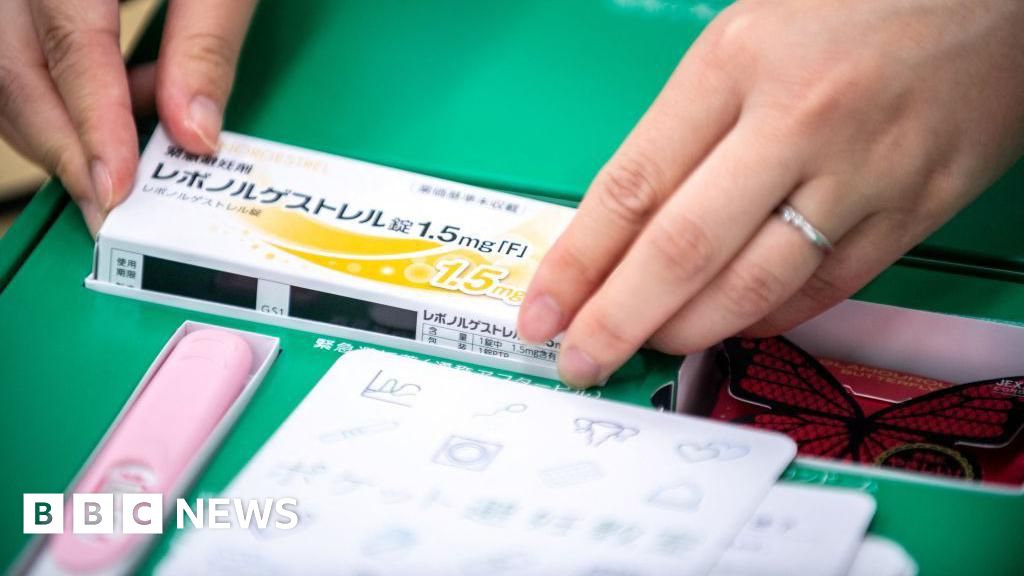PRESS REVIEW – Thursday, October 9, 2025: The Norwegian press remain sceptical about Donald Trump's hopes of being nominated for the Nobel Peace Prize, despite him having helped broker a tentative peace deal between Hamas and Israel. Also: there's outrage in India over the death of several children after ingesting a cough syrup containing a poisonous component. Plus: scientists hope a sawflies' ability to cut into a plant to lay eggs could revolutionise modern surgery.
The big question in the press is: will Donald Trump get his Nobel Peace Prize? Despite a Hail Mary peace plan between Hamas and Israel, Nobel Peace Prize committee members are reportedly laughing at the idea of Trump getting the prize, the Daily Beast tells us (citing a Financial Times report), just one day before the nominees are announced. The Norwegian press seem to think that Trump might be the least qualified person for the prize. "He begs and he threatens", the daily Dagbladet says, adding “maybe we should just give him the peace prize and be done with it”. An opinion article from Nettavisen Nyheter says the US president is "obsessed" with getting the Nobel, despite the fact that his past actions and comments could actively disqualify him: berating President Volodymyr Zelensky in the Oval Office, threatening military force to take back the Panama Canal and belligerent behaviour towards allies like Denmark and Canada.
However, the Australian website Crikey says a Trump peace prize might not be so far-fetched, given the award's history. The website reminds us that Alfred Nobel, its founding father, made his fortune making dynamite and modern explosives, then became directly involved in weapons manufacturing. Nobel justified this by saying that he hoped his weapons would make civilised nations recoil with horror and disband their troops. In 1973, Henry Kissinger received the Peace Prize, this after extending the Vietnam war into Cambodia and financing, arming and then betraying an Iraqi Kurdish insurrection against Saddam Hussein.
In any case, Trump’s Nobel fate rests in the hands of just five people, the Times of London notes. Along with the recipe for Coke and nuclear submarines, the Nobel Peace Prize deliberations are one of the most secretive processes on the planet. But no one is above bribery. One former chairman revealed that he was once taken to Disneyland and offered a trip to a brothel (which he declined). And while past laureates have lobbied, no one has lobbied as hard as Trump. One journalist wonders: will he impose an additional tariff on Norway if he doesn't get this award?
Moving on to India, police have arrested the owner of a pharmaceutical company whose cough syrup has been linked to child deaths there. The owner of Sresan Pharma Manufacturer was arrested this Thursday. At least 17 children under the age of five died after ingesting the Coldrif cough syrup, which was later found to have a toxic component 500 times above the permissible limit. The company is headquartered in Chennai, but the children died in the state of Madya Pradesh. India produces 90 percent of medicines for many African countries, and the World Health Organization has demanded information about whether the poisonous cough syrup has been exported, The Hindu reports.
In the Indian press, there is much outrage at the news. Business Standard takes us inside the company headquarters in Chennai, and is appalled by poor hygiene conditions, including over 350 health violations. It also looks as if staff had not been there for some weeks. The editorial from Business Line calls it the "killer cough syrup". The paper deplores that India has not heeded past lessons, reminding us that in 2022, dozens of children died in The Gambia and Uzbekistan, with their deaths linked to Indian medication. Some rules have been tightened since then, the editor says, but adds that the investigation now must take stock of shocking lapses and review all manufacturing licences.
Finally: a small insect's cutting skills could help revolutionise medical surgery. The Daily Telegraph reports that a team of scientists observed female sawflies – wasp-like bugs – making specific incisions into a plant when they lay their eggs. They possess a tubular organ that's able to cut into a leaf of plant stem and insert the eggs without killing or damaging the plant. The larvae are then able to live off the plant's food supply. The lead author for the study chalked it down to elegant engineering refined by millions of years of evolution. They're hoping now to mimic the sawflies' teeth to see if this could help human surgeries, which are complex because surgeons find themselves working in blood-flooded environments with poor visibility.
You can catch our press review every morning on France 24 at 7:20am and 9:20am (Paris time), from Monday to Friday.











 English (US) ·
English (US) ·